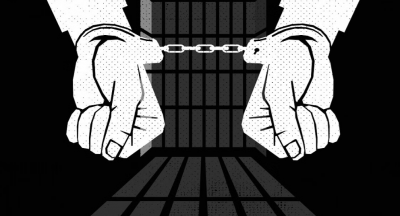Counterfeit incidents maintain record rate in 2012: IHS
Counterfeit parts are an escalating global supply chain challenge where a single occurrence represents widespread risk to product cost and quality, human safety, and national security. These new counterfeit report figures arrive at a time when the U.S. Department of Defense (DoD) is scheduled to update the Defense Federal Acquisition Regulation (DFAR) Supplement to the Federal Acquisition Regulation (FAR) on October 3, 2012. These updates are part of measures intended to regulate the detection and avoidance of counterfeit electronic parts as part of the National Defense Authorization Act (NDAA) of 2012. “Counterfeit parts represent a serious and growing risk to the electronics supply chain in general and to the aerospace and defense industry in particular,” said Rory King, director, supply chain product marketing at IHS. “Each month that passes, more than a hundred counterfeit incidents comprised of thousands of suspect parts are reported. That’s why the spotlight is shining squarely on tighter policies and procedures aimed at counterfeit detection and avoidance. The good news from all this attention is that an increasing number of supply chain participant companies are joining credible anti-counterfeiting organizations like ERAI – exclusive partner to IHS and an organization that monitors, investigates, and reports on counterfeit electronic components – and filing a greater number of reports that then serve as proactive alerts to others in the supply chain of real counterfeits in circulation.” Among all reporting entities in IHS figures, sources include the Government-Industry Data Exchange Program (GIDEP) and ERAI. Consistent with 2011, ERAI represents the significant majority of reports made – 88 percent of year-to-date 2012 totals. Counterfeit parts are an escalating global supply chain challenge where a single occurrence represents widespread risk to product cost and quality, human safety, and national security. These new counterfeit report figures arrive at a time when the U.S. Department of Defense (DoD) is scheduled to update the Defense Federal Acquisition Regulation (DFAR) Supplement to the Federal Acquisition Regulation (FAR) on October 3, 2012. These updates are part of measures intended to regulate the detection and avoidance of counterfeit electronic parts as part of the National Defense Authorization Act (NDAA) of 2012. “Counterfeit parts represent a serious and growing risk to the electronics supply chain in general and to the aerospace and defense industry in particular,” said Rory King, director, supply chain product marketing at IHS. “Each month that passes, more than a hundred counterfeit incidents comprised of thousands of suspect parts are reported. That’s why the spotlight is shining squarely on tighter policies and procedures aimed at counterfeit detection and avoidance. The good news from all this attention is that an increasing number of supply chain participant companies are joining credible anti-counterfeiting organizations like ERAI – exclusive partner to IHS and an organization that monitors, investigates, and reports on counterfeit electronic components – and filing a greater number of reports that then serve as proactive alerts to others in the supply chain of real counterfeits in circulation.” Among all reporting entities in IHS figures, sources include the Government-Industry Data Exchange Program (GIDEP) and ERAI. Consistent with 2011, ERAI represents the significant majority of reports made – 88 percent of year-to-date 2012 totals.
Related Posts
Alfano praises anti-counterfeiting police raid in Naples
Interior Minister Angelino Alfano on Wednesday praised an operation in which...
3 held smuggling sugar from India
Some syndicates are smuggling 400 to 500 sacks of sugar daily from India to...
New report looks into Global anti-counterfeiting packaging market outlook to 2020
Packaging plays a crucial part in various industries such as food and...
Philips Alerts on Counterfeit Products In Nigeria
Royal Philips yesterday lamented that over 50 per cent of products bearing its...





